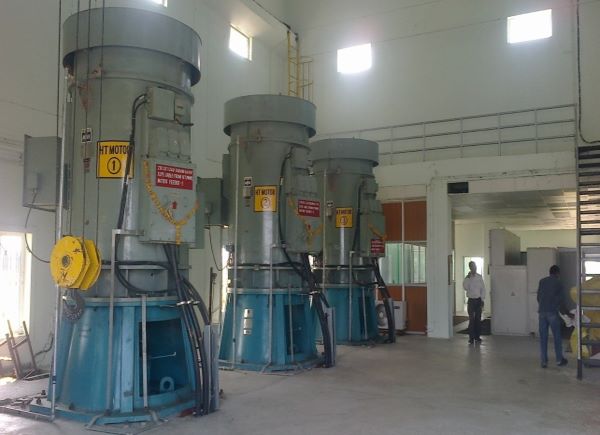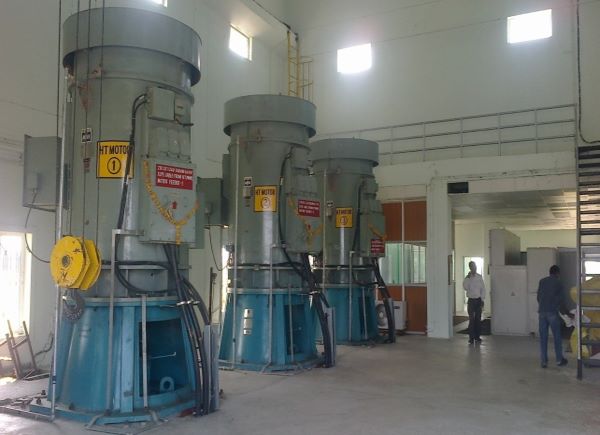Best Vibration Diagnostics and Troubleshooting Service
Excessive vibration in machinery and equipment can cause different problems like reduction in quality, energy loss and negatively impact a work environment. At NCES, we specialize in identifying and solving vibration-related issues in industrial systems, ensuring optimal performance, minimizing downtime, and extending the lifespan of your equipment with vibration diagnostics and troubleshooting services.
Importance of Vibration Analysis and Diagnostic Service
Vibration problems are one of the most common causes of equipment failure in industries such as manufacturing, energy, and automotive. Unchecked vibrations can lead to:
• Component Wear and Tear: Excessive vibration can accelerate the degradation of bearings, shafts, and other critical components, leading to costly repairs.
• Reduced Efficiency: Vibration issues can reduce the efficiency of machines, resulting in energy losses and reduced output.
• Increased Downtime: Vibration-related failures can cause unplanned downtime, impacting productivity and bottom-line performance.
• Safety Hazards: In some cases, excessive vibration can pose safety risks to employees and affect the structural integrity of machines or buildings. That’s where our Vibration Analysis and Diagnostic Services come in. Using advanced techniques and state-of-the-art tools, we pinpoint the root causes of vibration issues and implement effective solutions to resolve them quickly and efficiently.
Benefits of Our Vibration Diagnostic and Troubleshooting Services
• Improved Equipment Performance
• Reduced Downtime
• Cost Savings
• Enhanced Safety
• Energy Efficiency
Industries We Serve
• Automotive and Aerospace
• Energy and Power Generation
• HVAC Systems
• Marine and Offshore Operations
• Oil and Gas
• Construction Equipment
Why Choose Niharika Computational Engineering Solutions?
• Expertise
• State-of-the-Art Equipment
• Customized Solutions
• Proven Track Record
• Comprehensive Support
Experimental Modal Analysis is a sophisticated vibration analysis technique used to examine the dynamic behaviour of structures, particularly at their natural frequencies. Operational Deflection Shape (ODS) analysis investigates the dynamic deflection of structures under operational conditions, serving as an effective method for diagnosing various vibration issues. This analysis is instrumental in determining whether a vibration issue stems from forced vibrations or resonance. Understanding the natural frequencies of machine components is crucial for design validation. Impact testing is employed to measure the natural frequencies of components like turbine blades, fan blades, and automotive parts such as brake discs and drums, playing a key role in design validation and troubleshooting noise and vibration issues. Equipped with the latest measurement hardware and software, partnered with experienced professionals, NCES is in a position to offer quality and reliable measurement and analysis services to industries. With our vast experience in analysing noise and vibrations from industrial equipment, NCES has successfully addressed vibration issues for reputed Indian clients on a turnkey basis.

Accurate determination of the natural frequencies of vibrating machinery through Finite Element Analysis (FEA) software such as Ansys and LS Dyna is a crucial step in addressing vibration and resonance challenges. It is vital to validate the FEA model against measured vibration data to ensure the reliability of the FEA outcomes. Following this, design optimization in conjunction with FEA tools allows engineers to implement necessary modifications to shift natural frequencies away from operational frequencies, thereby eliminating resonance. The calculation of natural frequencies for civil structural components and foundations using FEA significantly aids in identifying potential resonances. The team at NCES possesses extensive expertise in creating 3D CAD models, performing essential FEA analyses, and executing design optimizations to develop effective solutions for mitigating vibration and resonance issues.
Foundations and structures that support vibrating machinery must be specifically designed to mitigate the negative impacts of vibrations. The effectiveness, safety, and stability of these machines are significantly influenced by their design, manufacturing processes, and their interaction with the surrounding environment. Consequently, it is essential that machine foundations are engineered to ensure that the dynamic forces generated by the machines are effectively transmitted to the soil through the foundation, thereby preventing any detrimental effects. Resonance can occur when the natural frequencies of the foundation-soil system align closely with the operating frequency of the machine, leading to intense vibrations. Additionally, the natural frequencies of the foundation-soil system may evolve over time as the foundation ages, potentially introducing resonance problems that were not previously present. Adverse geotechnical conditions, such as inadequate bearing capacity or insufficient stiffness, can also result in foundation resonance, vibrations, or settlement issues. The deterioration of reinforced concrete components, caused by various physical and chemical factors, further exacerbates industrial vibrations. NCES team comprises skilled engineers with extensive experience in performing thorough investigations of machine foundations. This process begins with visual inspections and an analysis of existing foundation designs, followed by non-destructive condition assessment tests, including rebound hammer tests, ultrasonic pulse velocity tests, carbonation tests, and electrochemical half-cell potential meter tests, as well as semi-destructive tests in accordance with NABL standards. These assessments aim to evaluate the current condition of machine foundations and recommend restoration strategies for distressed structural members to restore their functionality and prevent further decline. We possess the necessary infrastructure and a team of experienced engineers capable of conducting Finite Element Analysis (FEA) to simulate the behavior of the foundation. This analysis helps identify components that may be overstressed and determine resonance frequencies while taking into account the interaction between the soil and foundation.

